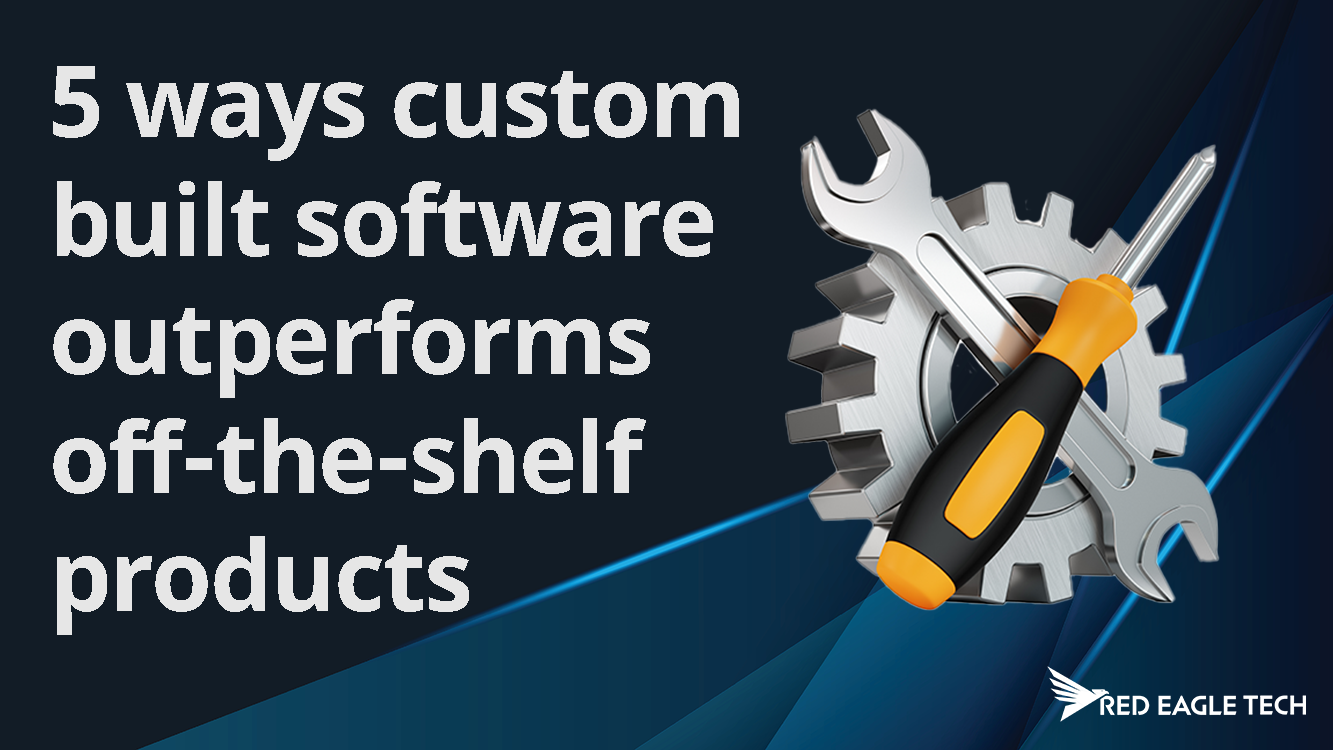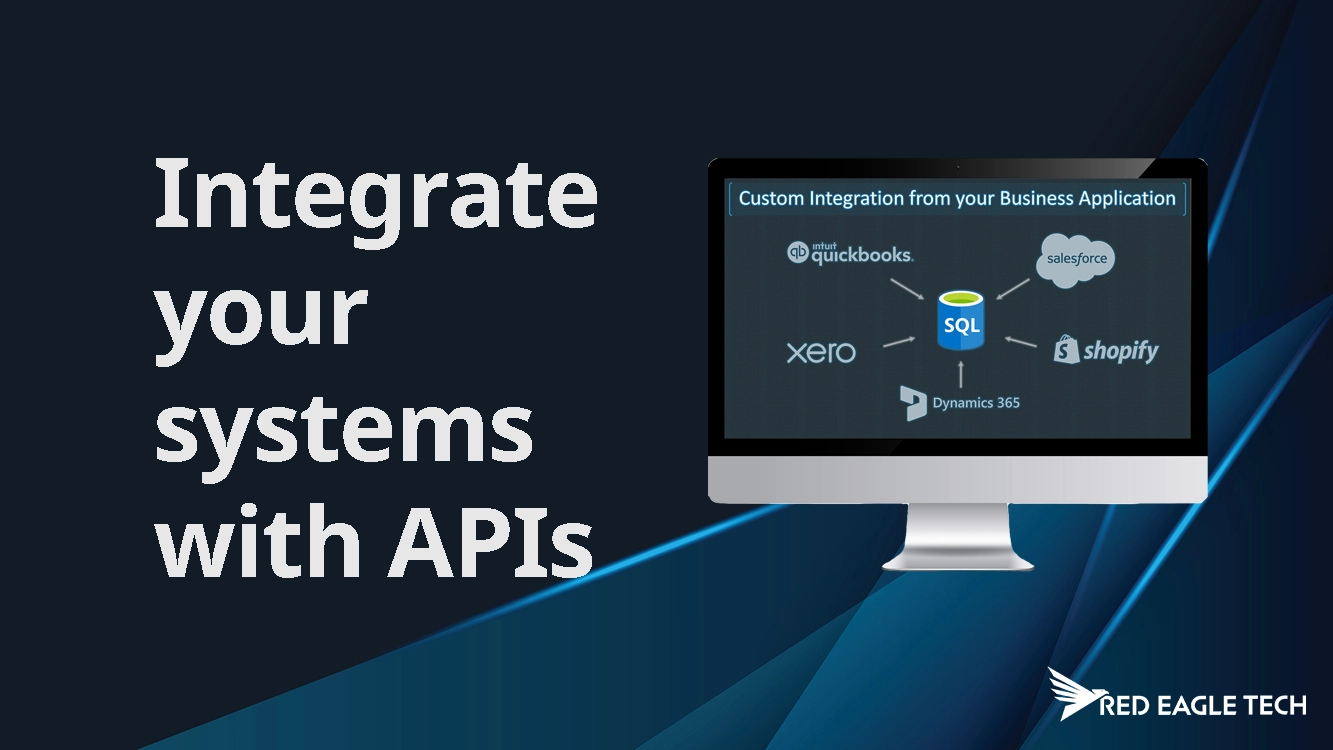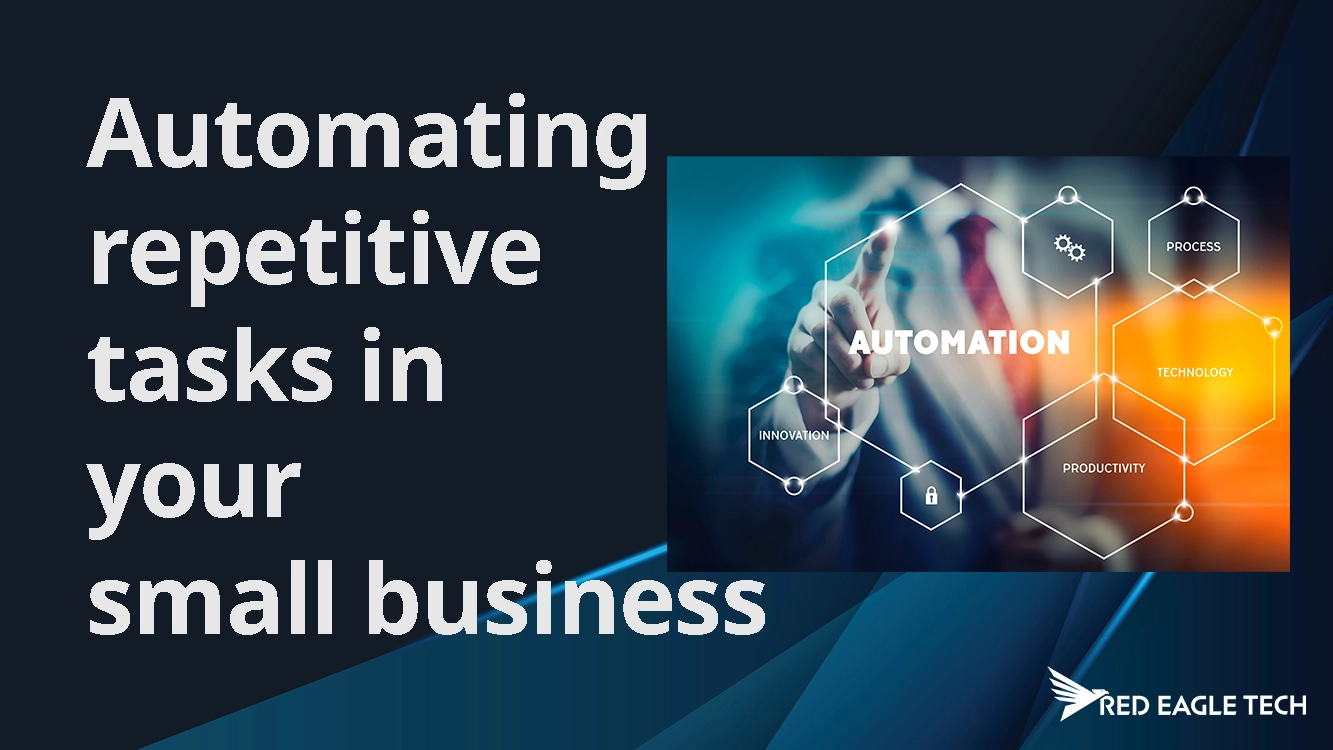
5 Ways custom software solutions outperform off-the-shelf products
As a small or medium-sized business owner, you've likely faced a big software decision: do you buy a ready-made software package or invest in a custom-built solution. Off-the-shelf software can be attractive with its lower upfront costs and quick setup, but custom software offers unique advantages that can drive efficiency and growth in the long run.
In this guide, we'll walk through five key ways custom software outperforms off-the-shelf products, and discuss when it makes sense to choose custom development vs. packaged solutions.
1. Tailored to your business needs
Every business is unique, so your software should be too. Custom software is built specifically for your workflows and requirements, meaning it fits like a tailored suit.
In contrast, off-the-shelf products are designed for a broad market and might force you to adapt your processes to the software's way of doing things. This "one-size-fits-all" approach can lead to workarounds, unused features, or even changing how your team operates just to accommodate the tool.
With a custom solution, every feature is there for a reason -- to solve a problem or streamline a task that matters specifically to your business requirements. You won't be paying for unnecessary features that don't quite fit.
For example, a local financial services firm found that off-the-shelf software lacked the specific compliance tracking they needed. By investing in a custom application, they built in automated compliance checks tailored to their regulations, which was something that generic software couldn't easily provide.
Another benefit of this tailored approach is how easily it can be adopted. Since custom software matches your team's habits and terminology, it often requires less training and won't disrupt daily operations. Your staff can hit the ground running, instead of wrestling with a tool that wasn't really made for their needs.
2. Seamless Integration with Your Existing Systems
Small businesses today use a mix of tools -- from accounting software to CRM systems -- and getting them to "talk" to each other can be a challenge. Custom software is designed to slot into your existing tech stack seamlessly, connecting with your other applications so that data flows smoothly across your operations.
Off-the-shelf solutions, on the other hand, might not play nice with your current tools. You could end up spending extra on adapters or manual data transfers because the out-of-the-box product wasn't made with your specific environment in mind.
With custom development, integration is a priority from day one. Developers can build connectors or use APIs to ensure that your new system automatically pulls information from your existing tools and updates them in real time. This means no more duplicate data entry or batch exporting because your systems act like a unified whole.
Consider a growing retail business: they might use separate software for in-store sales, e-commerce, and inventory. A custom solution could tie all these together. When a product sells online, it automatically adjusts in-store inventory and triggers reordering, keeping everything in sync. Such smooth integration is hard to achieve with off-the-shelf products without costly add-ons.
3. Scalable and Flexible as Your Business Grows
What works for you today may not tomorrow, especially if your business is expanding. Custom software is built with scalability in mind, so it can grow alongside your business.
If you need to add more users, support a new location, or handle a surge in transactions, a custom solution can be designed to accommodate these changes with minimal hassle. In contrast, off-the-shelf software often has fixed limitations, for example you might hit a user cap, run into performance issues with large data volumes, or find that you need to upgrade to an entirely new product when you outgrow the old one.
With a custom solution, you have the flexibility to extend features or increase capacity when you need to. The software's architecture can be made modular, allowing developers to tweak or add components without overhauling the entire system.
A real-world case in point: a regional restaurant chain initially used a standard point-of-sale system suitable for one location. As they expanded to multiple sites, the off-the-shelf POS couldn't sync data across stores or support the new volume of orders. They switched to a custom POS and ordering system built for multi-location management, which centralised their inventory tracking and unified online and in-person orders across all branches.
The ability to adapt quickly also means if the market or your operations change (say you introduce a new service or respond to a competitor), your custom software can be updated to support that change, without waiting for a vendor's next release cycle.
4. Long-Term Cost Savings and Efficiency Gains
Budget is always a concern, and it's true that building custom software costs more upfront than buying a ready-made package. However, savvy business owners look beyond the sticker price and consider the total cost of ownership.
Over time, custom software can actually save you money and deliver better value. Why? Off-the-shelf products often come with ongoing expenses -- monthly or annual licence fees, costs for additional users or modules, and possibly charges for upgrades and support. Custom software, by contrast, is yours -- once built, you won't pay per-user or per-year licensing fees for it, and you'll only invest in the upgrades you truly need.
Think about the hidden costs of "cheap" off-the-shelf solutions. Many businesses find that as they grow, they spend significantly more on plugging the gaps of a generic system -- whether through manual work (which is staff time and salary), add-on tools, or workaround processes. In fact, companies often end up spending 40% more than expected on implementation and ongoing costs for off-the-shelf software due to these gaps.
Over the long run, custom solutions can reduce operational costs by automating repetitive tasks and eliminating inefficiencies. One retail business case study saw a 20% reduction in operational costs after switching to custom software, largely because processes that used to require manual oversight were streamlined.
There's also the cost of missed opportunities to consider. If a generic software tool is holding you back -- perhaps it can't handle a particular service or insight that would boost your revenue -- that limitation has a financial impact. Custom software is a long-term investment: while you budget more at the start, you're building an asset that can deliver cost savings and revenue growth for years to come.
5. Competitive Advantage and Unique Features
In a crowded marketplace, any edge you have over competitors is gold. Using the same off-the-shelf software as everyone else means you have access to the exact same features as everyone else -- nothing more, nothing less. Custom software gives you the opportunity to differentiate your business by implementing unique features or processes that your rivals can't easily replicate.
Consider customer experience: with a generic platform, you might be limited to the standard functions it offers. But with a custom solution, you can build in special touches that set you apart. For example, a chain of shops might develop a custom mobile app that offers a personalised loyalty programme, integrates with in-store kiosks, or provides tailored recommendations based on purchase history -- features that no off-the-shelf retail software offered in exactly the way they wanted.
In the restaurant case we discussed, the custom system enabled loyalty rewards, table-side tablet ordering, and real-time menu updates, which significantly enhanced the customer experience and helped the brand stand out from other eateries.
From an internal perspective, custom tools can also give you an advantage by aligning with your business model. If you've developed a more efficient workflow or a novel service offering, custom software can embed that innovation directly into how you operate. Competitors using off-the-shelf products might not be able to replicate your efficiency or service quality because their software won't allow it.
Cost-Benefit Analysis: Custom vs. Off the Shelf
Let's summarise the trade-offs between custom software and off-the-shelf solutions:
Upfront Cost vs Long-Term Value
- Off-the-shelf: Lower initial investment, often subscription-based
- Custom: Higher upfront costs, but potentially better long-term value without recurring licence fees
Time to Deploy
- Off-the-shelf: Quick implementation, usually days or weeks
- Custom: Longer development time (weeks or months) but better fit once deployed
Flexibility and Adaptability
- Off-the-shelf: Fixed feature set, dependent on vendor for updates
- Custom: Complete control to add or modify features as your business evolves
Licensing and Ownership
- Off-the-shelf: Ongoing subscription or licence fees, vendor controls the product
- Custom: You own the software, no recurring licence fees for the core product
Ongoing Support and Maintenance
- Off-the-shelf: Vendor provides support, but on their timeline
- Custom: You control support priorities, typically through a maintenance contract or in-house team
When to Choose Custom Development vs. Packaged Solutions
When does it actually make sense to invest in custom software? Here are some guidelines:
Choose Off-the-Shelf if:
- Your needs are common and well-served by existing products
- Your budget is tight and you need immediate implementation
- You're exploring a new area and want to test before committing
- A readily available tool meets ~80% of your requirements
Invest in Custom Software if:
- You have unique processes or operate in a niche industry that standard software doesn't adequately address
- You need seamless integration between multiple systems and are wasting time with manual data transfers
- You're scaling up or diversifying and suspect current tools won't keep pace
- You want to differentiate from competitors through technology or customer experience
- You've calculated the long-term costs and determined custom development will be more economical over 5+ years
Many businesses start with off-the-shelf solutions and switch to custom development when they hit a growth stage or a roadblock that packaged software can't handle. A good rule of thumb is: if software has become a bottleneck for your business, that's a strong signal to explore custom options.
Ready to Transform Your Business with Custom Software?
Deciding on the right software path is a big step, but you don't have to figure it all out alone. If you're leaning towards custom software, or even if you just want to explore the possibilities, our team at Red Eagle Tech is here to help. We specialise in designing and developing bespoke software solutions for SMEs, and we can provide an honest assessment of what would benefit your business most.
Not sure if custom development is worth it for you yet? Get in touch for a free, no-obligation consultation. We'll discuss your needs, compare options, and help you weigh the costs and benefits. Contact us today or visit our Software Engineering services page to learn more about how we can tailor technology to drive your business forward.
The right solution can save you time, money, and hassle and even open up new opportunities for growth. Let's make your business operations as efficient and unique as your business itself, with software that truly fits.










